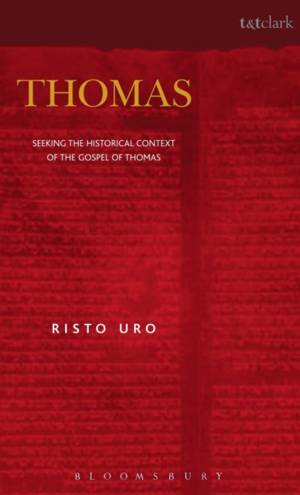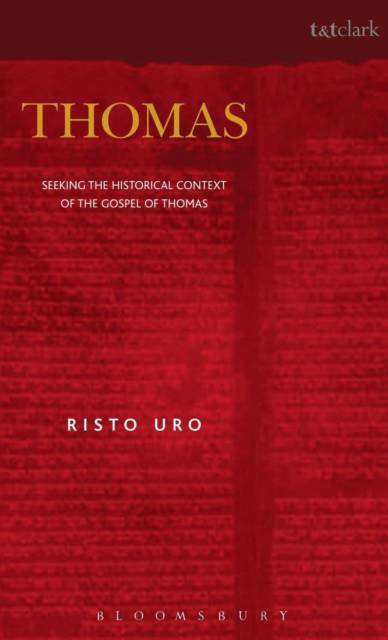
Bedankt voor het vertrouwen het afgelopen jaar! Om jou te bedanken bieden we GRATIS verzending (in België) aan op alles gedurende de hele maand januari.
- Afhalen na 1 uur in een winkel met voorraad
- In januari gratis thuislevering in België
- Ruim aanbod met 7 miljoen producten
Bedankt voor het vertrouwen het afgelopen jaar! Om jou te bedanken bieden we GRATIS verzending (in België) aan op alles gedurende de hele maand januari.
- Afhalen na 1 uur in een winkel met voorraad
- In januari gratis thuislevering in België
- Ruim aanbod met 7 miljoen producten
Zoeken
Omschrijving
Many scholars believe that the Gospel of Thomas, the famous collection of Jesus' sayings found in Nag Hammadi in 1945, radically changes our understanding of the origins of Christianity. The Gospel is generally studied closely for the new light it throws on pre-canonical traditions and for the different world of wisdom it seems to represent. By contrast, Risto Uro seeks to locate the Gospel of Thomas on the map of early Christian literature and history by comparing the Gospel to other related writings and traditions of the period. These include the writings ascribed to the mysterious apostle, Judas Thomas, other documents from Nag Hammadi, Paul and Stoic teachers, and the Gospel of Matthew. Uro argues that the conventional methods scholars have been using in their studies are in need of rethinking and refinement. Among many conclusions is the author's belief that Thomas is an early second-century work written by people who, like many other first- and second-century Christians, understood Jesus' message in terms of the Hellenistic belief in the divine origin of the self.
Specificaties
Betrokkenen
- Auteur(s):
- Uitgeverij:
Inhoud
- Aantal bladzijden:
- 208
- Taal:
- Engels
- Reeks:
Eigenschappen
- Productcode (EAN):
- 9780567083296
- Verschijningsdatum:
- 12/11/2003
- Uitvoering:
- Hardcover
- Formaat:
- Genaaid
- Afmetingen:
- 136 mm x 223 mm
- Gewicht:
- 390 g

Alleen bij Standaard Boekhandel
+ 831 punten op je klantenkaart van Standaard Boekhandel
Beoordelingen
We publiceren alleen reviews die voldoen aan de voorwaarden voor reviews. Bekijk onze voorwaarden voor reviews.









